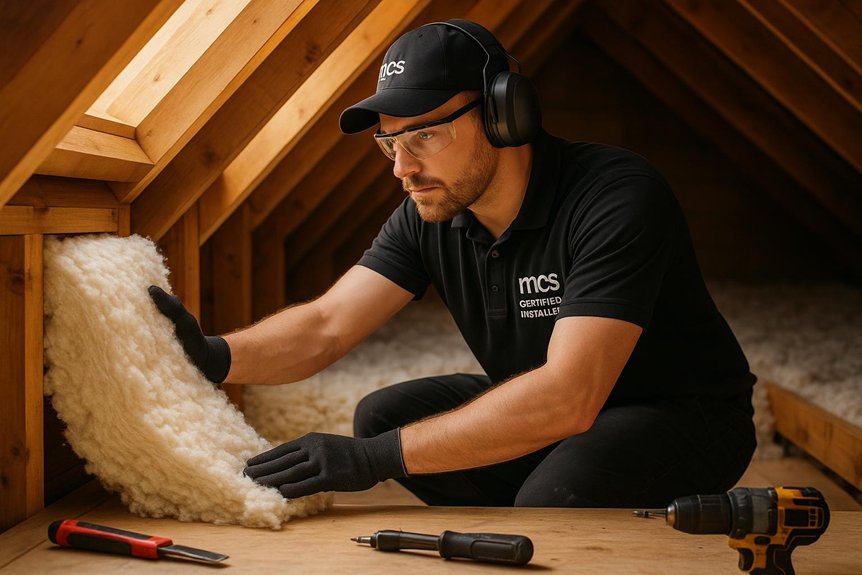A MCS certified installer meets rigorous standards, showing verified technical competence by completing MCS-approved training and maintaining ongoing skills under MCS 025. They operate a tailored Quality Management System that supports consistent quality and continuous improvement while adhering to safety and installation practices. Additionally, you’ll find they’re committed to consumer protection through membership in approved Consumer Codes like RECC or HIES. These requirements guarantee reliability and high service levels in renewable energy installations. You’ll uncover further details about their certification process and industry impact.
Requirements to Achieve MCS Certification
Although achieving MCS certification involves several detailed steps, you must first demonstrate compliance with the MCS 001-1 Standard, which sets the technical benchmarks for installation practices. You’re required to identify a Nominated Technical Person (NTP) for each technology, ensuring they’ve completed MCS-approved training to establish competency. Additionally, operating a Quality Management System (QMS) tailored to your business size and purpose is mandatory, providing clear evidence of effective quality management. Membership in an approved Consumer Code, like the Renewable Energy Consumer Code (RECC) or HIES, is also necessary to prove your commitment to consumer protection standards. Finally, you must continuously demonstrate competency by adhering to the MCS 025 Standard, maintaining your certification through ongoing compliance and skill verification. This process not only enhances the installer’s credibility but also supports the growth of renewable energy initiatives in the UK.
Ensuring Quality and Customer Commitment
Meeting the foundational requirements for MCS certification sets the stage for maintaining high standards in both quality and customer service. You must operate a Quality Management System (QMS) tailored to your business size and purpose, demonstrating effective quality control throughout installations. Joining an approved Consumer Code, like the Renewable Energy Consumer Code (RECC) or HIES, is mandatory, ensuring you commit to superior consumer protection and service standards. This commitment extends to employing skilled personnel who meet the MCS 025 competency criteria, with ongoing training and performance validation essential for continuous compliance. Your membership in a Consumer Code not only enhances customer care but also publicly signals your dedication to upholding rigorous consumer service levels throughout every installation project, reinforcing trust and reliability in your professional practices.
